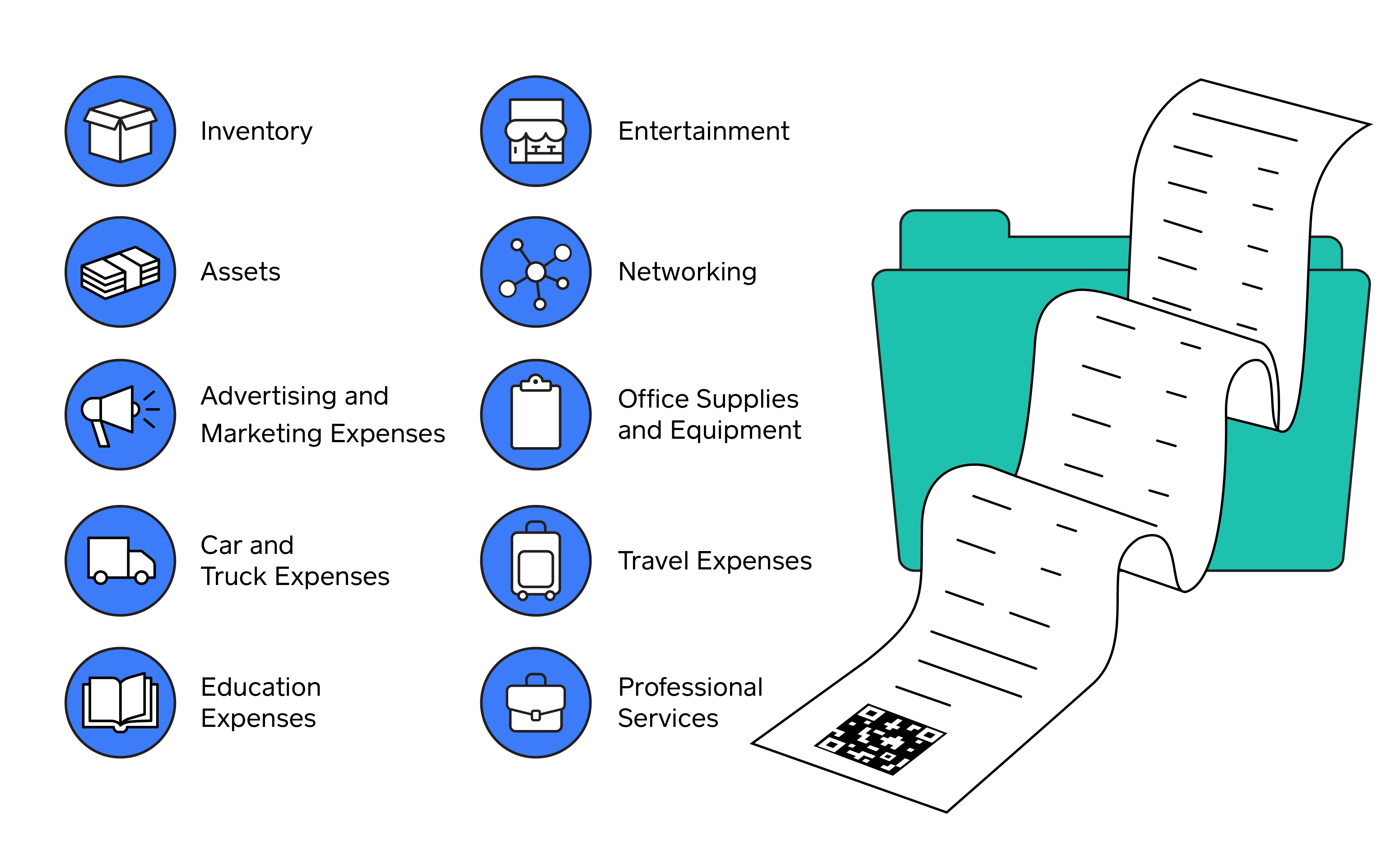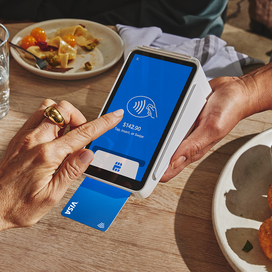Table of contents
Receipts are a pain. It’s easy to let them spin out of control. But no matter if you’re a brand new sole-proprietor or the proud proprietor of an S-Corp, good recordkeeping means hanging on to your receipts.
But which receipts should you keep? And in what form? And for how long? We’ll answer all those questions in this post.
Which business receipts do I need to keep?
According to the IRS, “Good records will help you monitor the progress of your business, prepare your financial statements, identify sources of income, keep track of deductible expenses, keep track of your basis in property, prepare your tax returns, and support items reported on your tax returns.”
And that they do. But what the IRS doesn’t explicitly mention is that if you don’t keep the right records you could end up in hot water. When it comes to keeping your receipts for recordkeeping, it’s a good idea to adopt the “better safe than sorry” attitude and keep all that pertain to your business. It’s also a good idea to consult with your accountant on this matter. But as a baseline, here are a few that you absolutely must keep:
Inventory
Buying inventory to sell to your customers? Or raw materials to craft into things to sell? Then hang on to documents that identify the payee, the amount, and proof of payment for the items. Get a receipt for these purchases if at all possible. If for some reason you can’t get a receipt, keep the invoice and cancelled check (proof that the person you wrote it to cashed the check).
Assets
Your assets are the property you own and use in your business. Assets are generally things you keep and use from year to year, such as furniture, computers, vehicles or machinery. If you’ve ever tried to handle assets on your taxes on your own, you know that you’ll have to deal with complicated concepts like “depreciation.”
Because of this, you should keep records of any kind where you spend money on your assets. For example, keep records when you service your bakery’s oven or upgrade your company’s computers. You’ll also want to keep records should you sell one of your assets.
Other expenses
Most of your business receipts will likely fall into this bucket. The rule of thumb here is, “If you plan on writing it off on your taxes, you’d better have documentation that you really made that purchase.”
While every business is different, here are some examples of business-related purchases you might make. Keep the receipts/invoices if you spend money on:
Advertising
This could include web hosting, business cards, ads in magazines or online, billboards, etc.
Car and truck expenses
If you’re able to deduct car and truck expenses, you may need to keep your receipts for things like gas and maintenance. Read here for more about the different ways you can deduct automobile expenses on your taxes and the recordkeeping methodologies for both.
Education expenses
Do you have to get continuing education in your business? Or did you take a class to learn something new? Keep your receipt or the invoice plus your bank records showing that you paid for the education.
Entertainment
Take a client out to lunch? These expenses can be tax deductible, but be careful. Don’t just keep the receipt. You should also keep records showing that your activities were directly business related. Page 10 of this IRS publication has more on deducting entertainment expenses.
Networking
Attend a conference or tradeshow? Just like the educational expenses, keep your receipt or the bill and your bank records as proof of purchase.
Office supplies
Printer paper, staples, paper clips. All of these are tax deductible, so keep the receipts when you head to the office supply store!
Professional services/contractors
Pay a lawyer to write up a contract or a graphic designer to design a new logo? Keep your invoice—and your receipt when you pay the bill.
Travel expenses
You may hop on a plane to visit a client or take a hotel room for a few nights to attend a conference. While the IRS has very specific instructions for deductible travel expenses, keep the receipts or bills for your travel expenses should you be able to deduct all or part of a trip.
Most of the time a receipt is sufficient, but sometimes it’s also worth it to keep the bill. Say, for example, you deduct a portion of your mortgage as a home office deduction. Since only a portion of your mortgage is deductible, you’ll want to show how much really went to costs associated with your home office.
How long should I keep business receipts?
You should keep receipts for as long as a taxing authority like the IRS or your state’s department of revenue can audit you. Most audits can only go back three years (from the date you file your tax return), but in some dire cases where fraud or severe tax underpayment is suspected, the IRS can audit you back to six years (again, from the date you file your tax return).
Do I have to keep the actual paper receipt?
Six years worth of business receipts is a lot of paper. But fortunately, nothing says you have to keep the receipt in it’s original paper form. You can file them away or digitize them. It’s up to you.
Organizing your receipts
There are a number of services out there that will help you organize and store your receipts. Take a look at tools like Cam Scanner, NeatReceipts, Receiptmate, and Shoeboxed to see if they might be helpful for your recordkeeping.
About TaxJar
Sales tax is complex. That’s why we created TaxJar — to handle the burden of sales tax while you get back to running your business. TaxJar pulls in sales tax collected from all the channels where you sell, compiles your data into return-ready reports, and can even AutoFile your sales tax returns for you in 26 states (and counting). Sign up for a 30-day TaxJar free trial today and put a lid on sales tax. And check out Square App Marketplace for more information on how to link your Square account to TaxJar’s tools.
![]()













